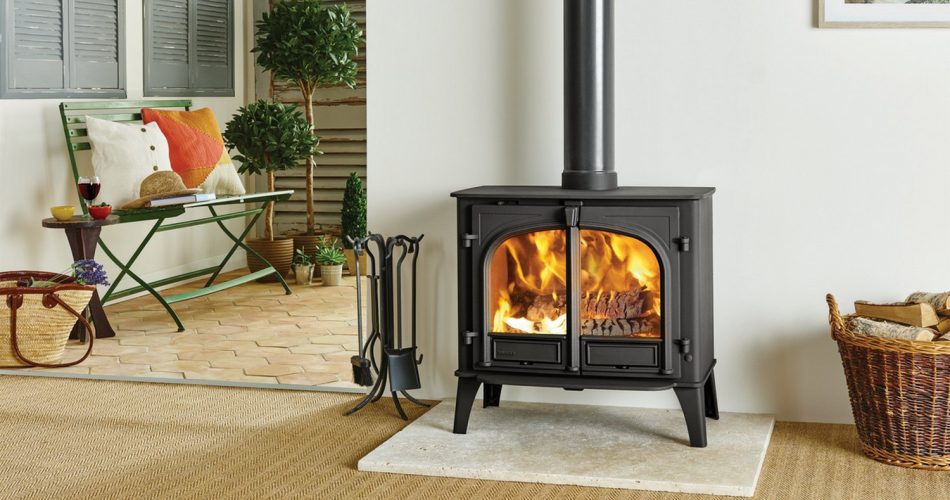Scottish Government Reverses Wood-Burning Stove Ban Amid Rural Backlash
In a significant policy shift, the Scottish government has temporarily lifted restrictions on installing wood-burning stoves in newbuild homes and conversions. This move comes after mounting pressure from rural communities and opposition parties, with the Scottish Conservatives labeling the decision a “humiliating U-turn” for the administration.
Background
Implemented in April 2024, the New Build Heat Standard (NBHS) was designed to reduce Scotland’s carbon emissions by prohibiting the use of direct-emission heating systems—such as gas or oil boilers—in new homes and buildings. The regulations aimed to promote cleaner heating solutions like heat pumps and heat networks, aligning with Scotland’s ambitious climate change targets.
Rural Concerns
The ban on wood-burning stoves ignited significant concern among residents in rural and remote areas. Many of these communities lack access to the main gas grid and rely heavily on wood burners for heating, especially during power cuts and extreme weather conditions. Critics argued that the regulations failed to consider the unique challenges faced by rural populations.
Kate Forbes, Member of the Scottish Parliament (MSP) for Skye, Lochaber, and Badenoch, previously voiced her apprehensions about the ban’s impact on her constituents. “For many in rural Scotland, wood-burning stoves are not a luxury but a necessity,” Forbes stated. “We must ensure that our climate policies are fair and do not disproportionately disadvantage those in remote areas.”
Government Response
In response to these concerns, the Scottish government announced a ministerial direction to temporarily remove the restrictions on wood burners and other biofuel heating systems, including peat. Climate Change Minister Alasdair Allan communicated the decision in a letter to council leaders across Scotland, stating, “The review is now concluding, and we will implement the outcome of this by the end of December 2024.”
This decision allows wood burners to continue being installed in new homes pending the outcome of the government’s review.
Political Reactions
The Scottish Conservatives welcomed the government’s reversal. Jamie Halcro Johnston, the party’s deputy rural affairs spokesman, described the move as a “long overdue climbdown” and a victory for common sense. “Sustained pressure from the Scottish Conservatives, as well as from our rural and island communities, has now forced ministers into a humiliating U-turn,” he said.
Johnston emphasized the importance of making the lifting of the ban permanent. “The consequences of imposing such a ban on installing wood-burning stoves in new homes would have been devastating for those that rely on them, especially during periods of extreme weather,” he added. “We will continue to urge the government to make this change permanent.”
Industry and Health Perspectives
The Stove Industry Alliance (SIA) praised the government’s decision, calling it a “common sense and progressive step.” SIA chairman Andy Hill stated, “This direction not only promotes the use of renewable energy sources but also provides homeowners with more options for efficient and sustainable heating.”
The SIA has argued that modern wood-burning stoves are a lower carbon-emitting heating option compared to direct electric heating, especially when sourced from sustainable forestry practices. They highlight advancements in stove technology that have significantly reduced emissions of particulate matter and other pollutants.
On the other hand, health experts have expressed concerns about the environmental and health impacts of wood burning. The Royal College of Paediatrics and Child Health has reiterated its opposition to wood burning in urban areas due to the pollutants emitted, which can contribute to respiratory issues in children and vulnerable populations. The organization advocates for wood-burning stoves to be phased out in cities and for support to be provided to rural residents to transition to cleaner heat sources.
Environmental Considerations
Environmental groups have had mixed reactions to the government’s decision. While some acknowledge the necessity of wood-burning stoves in rural areas lacking alternative heating options, they caution against potential setbacks in meeting Scotland’s climate targets.
A spokesperson for Friends of the Earth Scotland commented, “While we understand the challenges faced by rural communities, it’s crucial that we continue to move towards cleaner, renewable energy sources. Any temporary measures should not compromise our long-term environmental commitments.”
Looking Ahead
The Scottish government’s review of the NBHS is set to conclude by the end of December 2024. Stakeholders from various sectors are keenly awaiting the outcome, which will determine the future of heating regulations in Scotland.
As the nation strives to balance its climate goals with the practical needs of its diverse population, the debate over wood-burning stoves highlights the complexities of implementing uniform environmental policies across regions with differing circumstances.
Additional Context
Scotland has set ambitious targets to achieve net-zero carbon emissions by 2045, five years ahead of the UK-wide goal. Heating accounts for a significant portion of the country’s greenhouse gas emissions, making the decarbonization of domestic heating a critical component of environmental strategies.
Heat pumps, promoted by the NBHS, are considered a key technology in reducing carbon emissions from heating. However, their installation can be costly, and their efficiency may be less optimal in older buildings common in rural areas. Additionally, the electrical infrastructure in remote regions may not support the increased demand without significant upgrades.
Conversely, modern wood-burning stoves, when used with sustainably sourced wood, can offer a renewable heating solution with a lower carbon footprint compared to fossil fuels. Nevertheless, concerns remain about emissions of particulate matter and their impact on air quality and public health.
Conclusion
The Scottish government’s temporary reversal of the wood-burning stove ban reflects the challenges of enacting environmental policies that are both effective and equitable. As the review progresses, policymakers will need to consider the needs of rural communities, environmental goals, and public health implications to find a balanced solution.




Comments